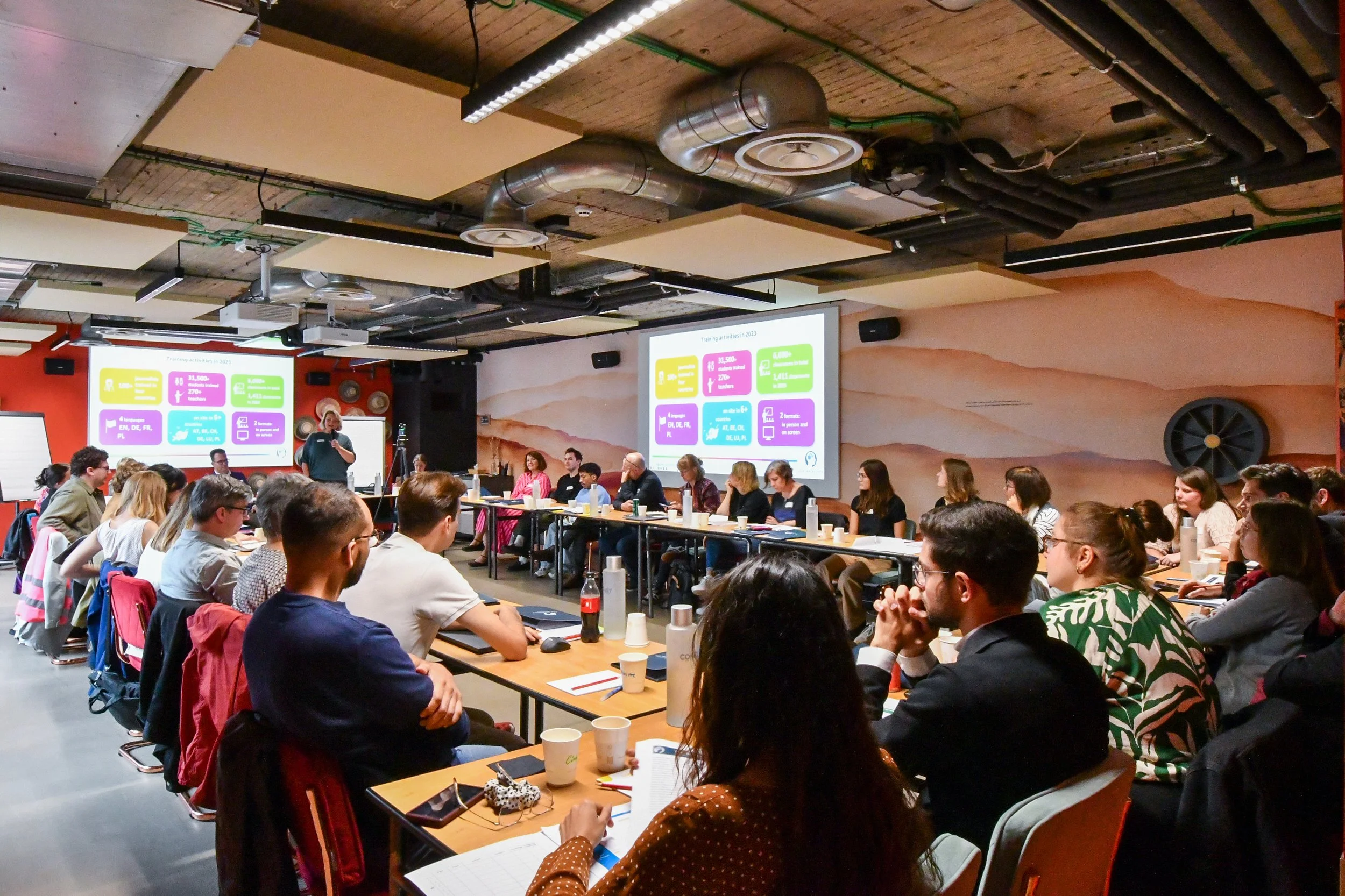
FAQ for Journalists and newsroom managers
Citizens urgently need media literacy skills to make sense of individualised news feeds and social media steered by algorithms.
Who better to help than professional journalists?
-
Lie Detectors receives all core funding from the US-based Wyss Foundation and is accredited as a charity by donor advised fund Myriad. Several of our projects are funded via EU grants. Lie Detectors is non-partisan and our remit is universal. Our commitment to take no funding from political parties and none from internet intermediaries such as meta and Google is cited by 77% of teachers as an important or very important factor in their decision to host Lie Detectors in their classrooms.
-
That’s great news. A growing number of newsrooms are realizing that as citizens increasingly assemble their world views from social media feeds, it’s time that journalists share the tools of inquiry so everyone can navigate online information carefully.
Whether your newsroom has never done this sort of work before, or whether you want to expand the work you already do, your fist step should be to contact us.
Once we’ve agreed to work with a newsroom, we ask that editors sign a media cooperation that commits you to providing a certain number of journalists for us to train; and to giving those journalists the time to visit schools at least six times per year. We will do the rest, including training your journalists, giving them the materials they need, getting them invited by schools and following up. We will also send you a report so you can see how well the journalists have been received and what their impact has been on spreading critical thinking skills. -
Lie Detectors offers free training for news media organisations and educational authorities wishing to build their own media literacy offering for schools. Please contact us.
-
Yes. Lie Detectors has trained more than 500 journalists from print, online and broadcast media. Journalists participating in the Lie Detectors project are selected according to a set of four core criteria. To qualify, they must:
be accredited journalists with a recognised media organisation, or have been trained at a recognised journalism school;
work as full-time journalists or as media experts (this category includes for instance fact-checkers working for a newsroom, journalism professors, retired journalists);
not be engaged in paid work for political or non- journalistic commercial entities;
be able to view and speak about their medium critically.
Journalists can participate either independently or as part of a formal cooperation between Lie Detectors and news organisations. Formal media cooperations have been very popular with news organisations who wish to engage with audiences but don’t have the resources to develop their own programmes.
-
Once selected, journalists participate in two training sessions: a one-day workshop (unpaid) in which they are trained to work with a script that has been developed with the help of children, teachers and psychologists, followed by a half-day online workshop. This means you will be ready to deliver sessions either face-to-face in physical classroom visits or via video-conferencing.
Please send an email to info@lie-detectors.org and our team will get back to you with the next date and place of a workshop happening close to your locality.
-
The rationale behind the script is to create a consistent module whose usefulness and success can be measured.
-
Once we’ve trained you, we will match you with teachers who have requested our digital media literacy module.
Your visits will occur either in your locality or online. We’ll send you the materials you need, answer your questions as you prepare. Regardless of how seasoned a journalist you are, your first classroom visit is likely to be nerve-wrecking and we will follow up with you after your first visit so you can keep getting better.
-
Acting as volunteers, journalists can opt to receive compensation for their charitable classroom visits once a visit is complete (currently EUR150 per visit).
Journalists who move on to training teachers and educational multipliers are generally considered consultants rather than volunteers, with different fees applying.
-
Trained journalists commit in writing to delivering a minimum of six classroom visits per year and to comply with Lie Detectors ethical guidelines. You’ll also be asked to inform us if you change jobs so we can be sure you are still eligible as a Lie Detectors volunteer.
-
Yes. If you are a journalist, you will need to sign to agree with our ethical guidelines.
If you are a newsroom representative/manager, you will need to sign a cooperation agreement that allows the partnership to follow certain steps that are necessary to meet the requirements and the quality of our programmes.
-
Classroom visits are mostly organised to take place during the morning and the coordination and scheduling is done by us at your best convenience.
-
Yes, our ethical guidelines can be found here.
-
No.
Lie Detectors uptrains only its most engaged and seasoned volunteers to train educational multipliers and teachers. This is because we’ve found that teachers particularly trust and learn from journalists who’ve worked with children and who therefore understand the complexities and challenges of the classroom universe.
And it’s normal to be afraid. The truth is that working with roomful of students aged 10-15 can be fairly terrifying at first. That’s why Lie Detectors places particular emphasis on training journalists to be confident in a classroom setting; to work in an age-appropriate and inclusive way, and to engage with honesty and vulnerability. Every journalist has a point of contact at Lie Detectors and can ask for additional support when needed.

